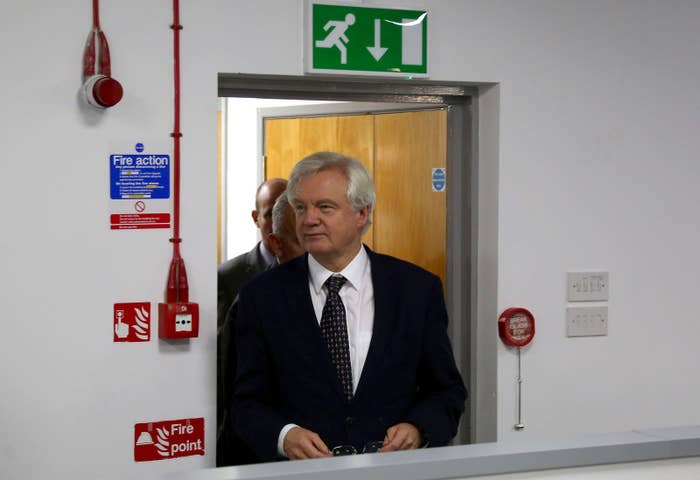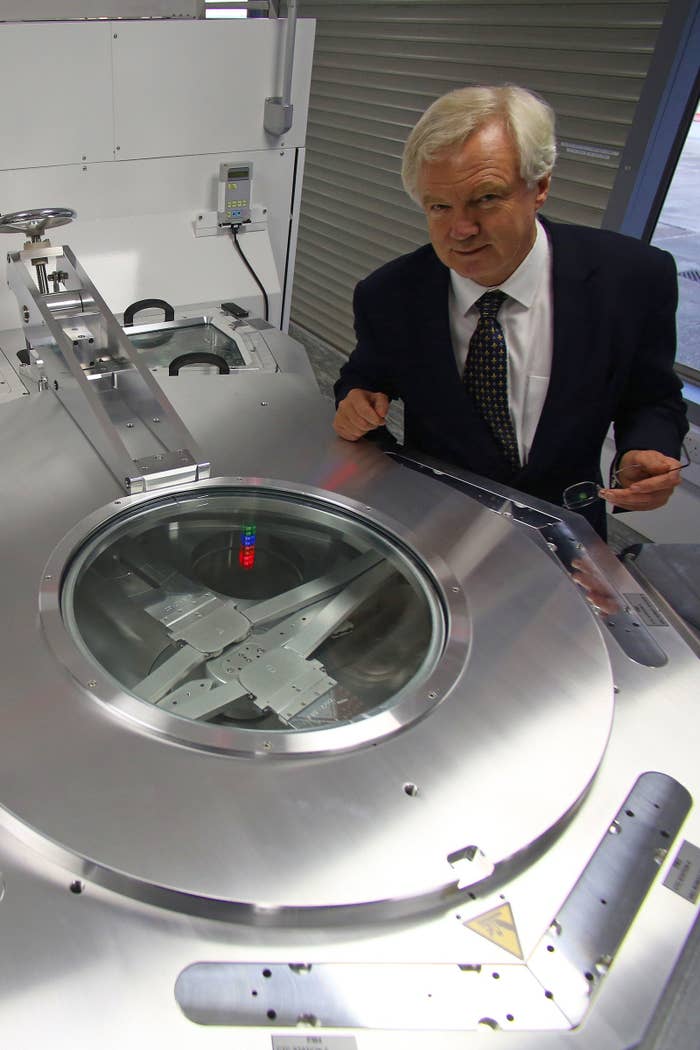
Brexit secretary David Davis has said the UK may have to pay the European Union even after it leaves the bloc in order to continue accessing the single market.
Davis, in response to a question in parliament about paying for access to the single market, said: "The major criterion here is that we get the best possible access for goods and services to the European market – and if that is included in what you are talking about, then of course we will consider it."
The issue of paying the EU for access to the single market has been floated before. In October a "leading light" of the Leave campaign told the BBC it could cost the UK up to £5 billion a year to maintain access.
Membership of the EU currently costs the UK roughly £11 billion a year. It's estimated the UK will be paying into the EU until 2022 or 2023 – but there are a few question marks over what we'll still contribute to when we finally leave.
1. British EU civil servant pensions
These may be wrapped up in the exit costs of Brexit. Roughly 1,700 British nationals make up approximately 8% of the 22,000 retired EU officials. But the British government has said these former officials are not its problem, and that the UK’s share of the €59 billion civil servants pension pot is instead the EU's responsibility.
Félix Geradon, deputy head of the biggest EU union, Union Syndicale-Bruxelles, told The Parliament Magazine earlier this year that although the UK was correct that pensions were an EU budget responsibility, "the budget is a common responsibility of the member states".
As a compromise, the UK may end up having to pay off its pensions contributions in a lump sum, closing any financial exposure, and creating a standalone pensions pot. The total could come to £5 billion, in addition to £4.5 billion in private sickness insurance, over the next couple of decades. And the UK's apparent disinclination to pay out might cause further acrimony during negotiations. "This could be horrible, ugly. I hope it won’t be,” one EU official told the Financial Times in August.
2. Science and research projects

In the past year, the UK has paid £5.4 billion towards EU science and research projects. (In return, scientists in the UK got around £8.8 billion towards their projects.) Now that the country has voted Leave, everything will be under negotiation – but we may continue paying into the pot in order to allow scientists their funding.
A House of Commons science and technology committee hearing in November raised concerns over the lack of a scientific adviser in the government's Brexit negotiations team and called on the government to "act urgently" to resolve any uncertainties over the future of funding.
Scientists have voiced their concerns over the future. "It would be very good for the UK to remain involved in the European programmes and to pay in to remain involved, because the kinds of collaborations that are possible through EU programmes are different from the ones that you can do nationally, so it’s complementary,” Kieron Flanagan, senior lecturer in science and technology policy at the University of Manchester, told BuzzFeed News.
In a similar manner to the pensions pot, there has been speculation that funding will continue as part of a lump sum "divorce settlement" agreed between the EU and the UK.
3. Special EU funds
In October, an official with the Brexit campaign said there was a possibility the UK would pay into some EU funds, potentially ones promoting the economic development of new member states in central and eastern Europe.
These same officials believe this may help secure preferential trade deals with those emerging economies. Should such a move happen, it could place Poland in a difficult situation – offered additional financial support but perhaps at the cost of the right of its citizens to move and work freely abroad.
However, the possibility of cherry-picking has been disputed. John Forrest, the head of international trade at law firm DLA Piper, told the The Guardian that "the UK will simply negotiate with the EU the continued terms of trade with the EU".
4. Unpaid bills
The EU held roughly €218 billion in debt in 2015, mostly from a series of economic development programmes, including motorways, and bridges, in the poorer parts of Europe.
The EU could make the UK cough up its share of this debt, which, according to Wirtschaftswoche, a weekly German business magazine, is around €25 billion or £21 billion. British officials have refused to confirm the number, instead telling the The Guardian that as negotiations were about to begin it would be wrong to "set out a unilateral position in advance".
EU officials have also refused to confirm the number, as there is no country-by-country breakdown of spending. Much of the money spent on infrastructure is given in commitments – similar to spending on a credit card and paying it off later – and funding had operated on a rolling basis, with the EU assigning funds for future projects. The UK's intended departure, and with it Britain's annual pay-in, has thrown this system into difficulties.
Furthermore, a spokesperson also rejected the suggestion the money owed is in fact "debt" at all. "Outstanding commitments are not debt. No member state has outstanding debts to the EU budget,” a spokesperson said.
